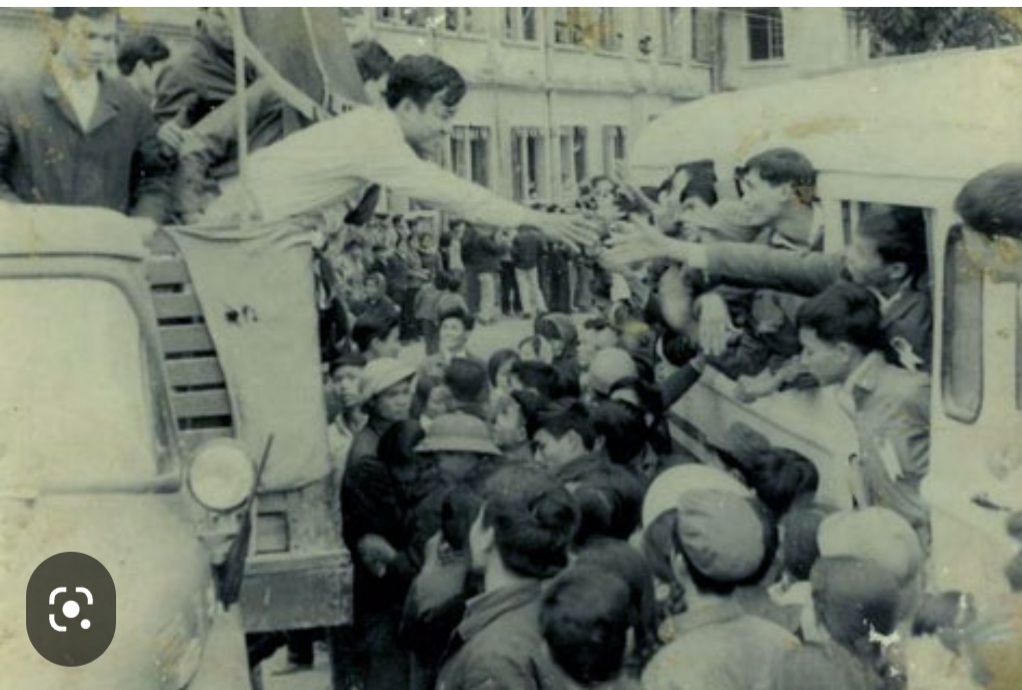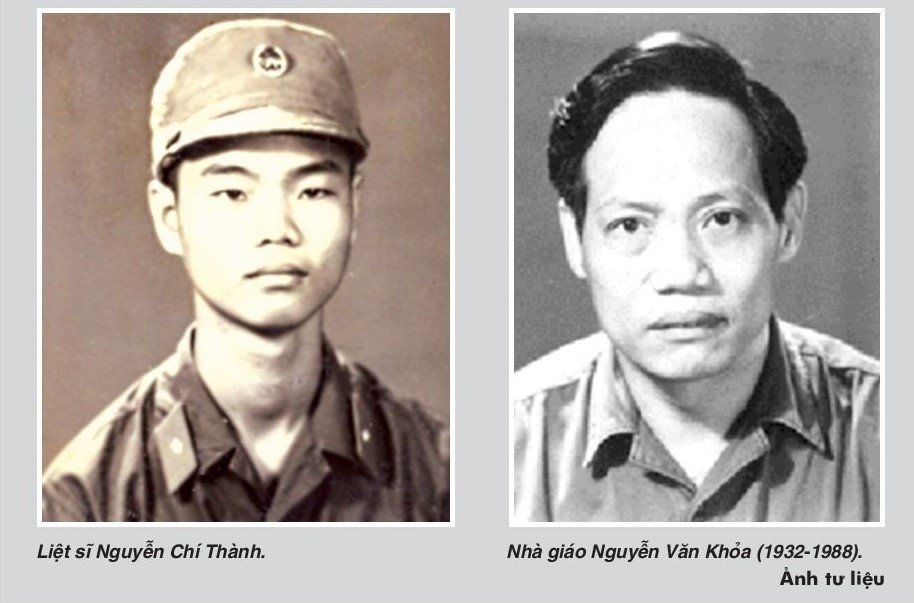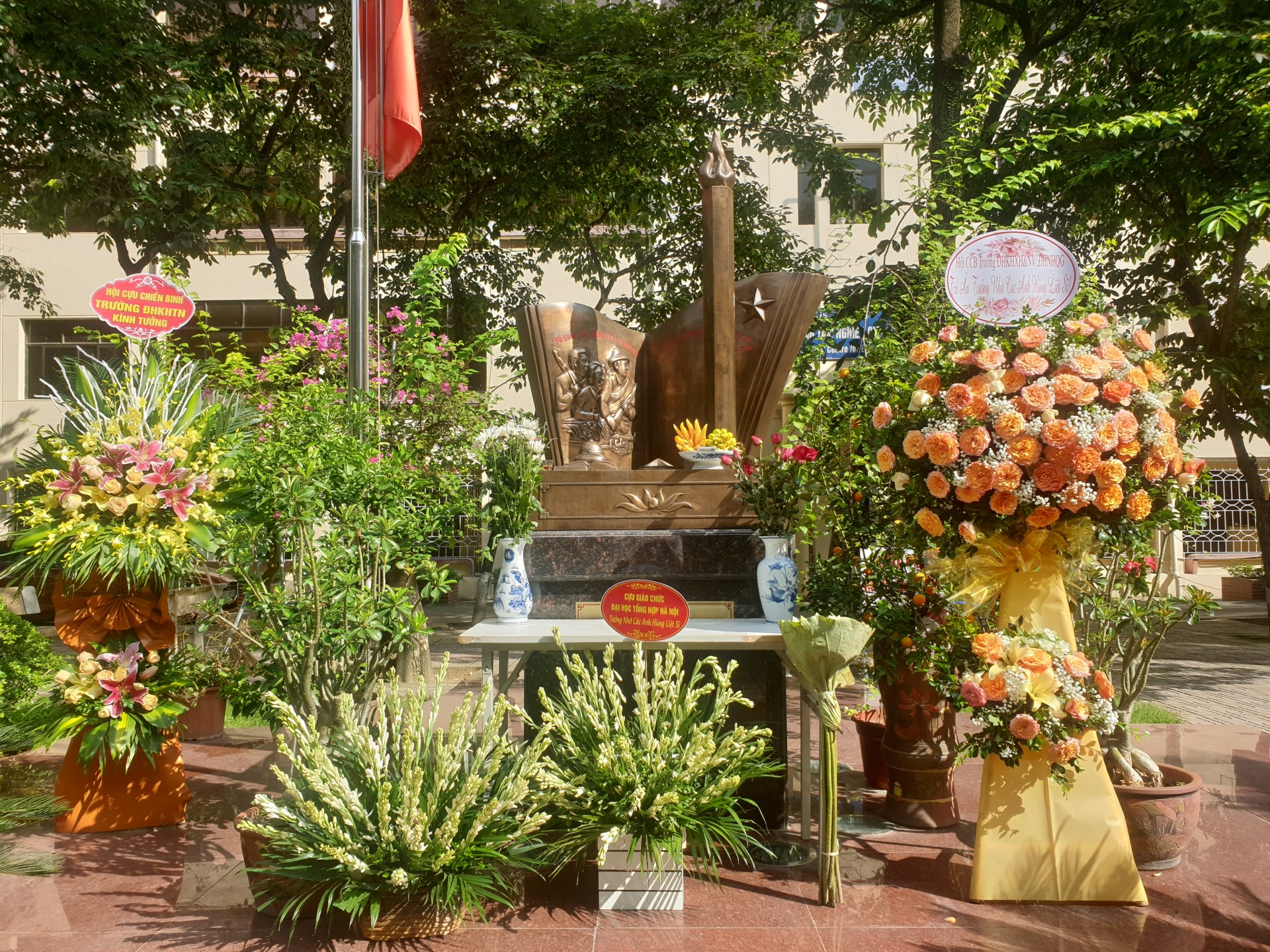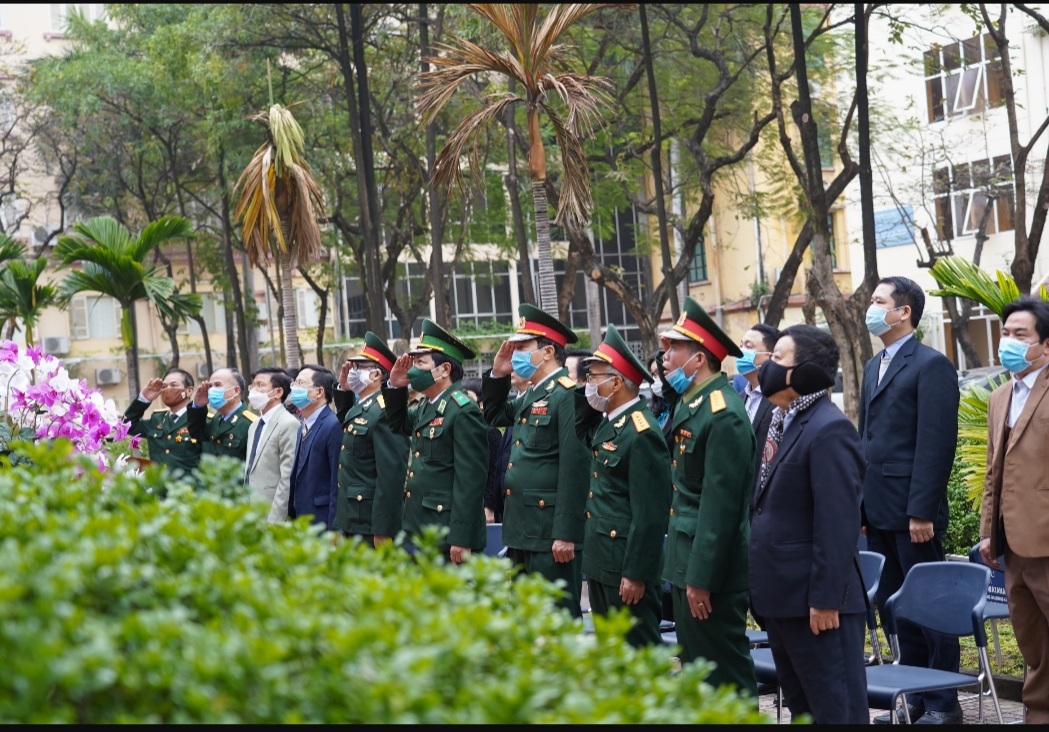In 1966, when the war against America had spread across the North and South, poet Nam Ha wrote these touching verses:
Country!
Of the girls and boys
Beautiful as a rose, hard as steel
No tears when apart
Tears are saved for the day we meet…”.
The poem “We fight for you to live forever, Vietnam” has the above verse, when it is recited, everyone understands that “the day we met” is the first day of peace, the day of joy of victory. The term “the day we met” in the poem here is symbolic: it symbolizes a belief, a determination and a hope towards the future of the war.
No one thought that the war would last so long, "tears to win" until ten years later.
In 1971, thousands of students from universities in the North eagerly went to war. The call for military service, recruiting students from universities into the army, was understood as a moment when the country had to use its “savings”, use its “last cards” for the resistance war for independence and freedom. Aware of that responsibility and historical context, university students who were recruited for military service were more determined and ready to go to war.

Students and staff of Hanoi University of Science eagerly enlisted on September 6, 1971.
Among the student regiments that left that year were us: 20 students of the 15th class of the Faculty of Literature, Hanoi University of Science. It was truly a farewell without any tears. Among the 20 young men who left that day, there was one young man who was the saddest, looking as if “tears were flowing inside”. He was sad because he had not yet received his score for an exam. It was the Western Literature exam of Mr. Nguyen Van Khoa. He felt that he had written the 180-minute exam with great passion and enthusiasm, but he might have gone off topic, gotten a low score, and had to retake the exam. During the departure ceremony, Mr. Nguyen Van Khoa did not come out to see us off. Everyone guessed that because he lived far away, he was the deputy platoon leader of the military intelligence platoon during the resistance war against the French, a veteran, now in poor health, unable to ride the rickety bicycle he had used to ride to teach during the Dien Bien Phu campaign, and could not attend the farewell ceremony. But he wrote a short letter, asking someone to take it as a message to the 9 students who took the exam in his subject: “I keep the 9 exam papers of you, those who went to war. If you are not allowed to continue to the second year, you do not need to write your transcripts anymore. I will wait for the day you return victoriously, come visit me, and receive your papers. You can rest assured to go on your way. All of you deserve the highest score, even a 10. Because there is no subject greater than the subject of love for the Fatherland. Writing an application to volunteer to join the army means you have already won the top score in that great subject. I wish you victory!”
Reading the encouraging message from Mr. Khoa, the young man with the sad face still could not cheer up. He just sighed, got in the car... Entering the training ground, he was passionate about practicing shooting all kinds of guns and researching all kinds of weapons. While his teammates were afraid of carrying heavy loads, preferring to keep the AK submachine gun for its compactness, he volunteered to keep the medium machine gun, the heaviest weapon in the company at that time. After three months of infantry tactical training, our student battalions were divided into different divisions and soldiers.
Another breakup. A breakup between men, and of course “without tears”.
Many people still remember: when he said goodbye to his comrades who were going to another division, he stood there hesitantly, because that division was sent to the South first, and his unit had to wait and go later. Unable to see his comrades off a little further, because his squad still had to go get rice for the company, he stood by the eucalyptus trees, looking very sad, with his eyes "full of sunset in his clear eyes". His friends and comrades could never forget his slim figure standing by the roadside to see his comrades off with sad eyes. His eyes seemed to foretell something ominous waiting for him ahead.
During the Quang Tri campaign, he was still the one holding the machine gun. Seeing that he was thin and small, the Battalion Commander wanted to transfer him to the communication squad, but he earnestly asked to stay and fight directly, with the reason that he was "used to using the machine gun". In the battles to defend the ancient citadel of Quang Tri, he was one of the most daring and courageous machine gunners. Seeing that he often went first in the attack formation, the platoon leader whispered to him: "When meeting the enemy, the leader is easily ambushed and fired the first volley of bullets. You are an only child, if you die, who will take care of your mother?". Hearing the leader's advice, he laughed and immediately corrected: "The leader read my resume wrong. There are several only children in our platoon, let me go first and shield them from bullets. I have an older sister and a younger brother too. But it's not certain that I will be able to hit me". After "clearing the commander's mind", he continued to go first, taking the position of the number one attack force. His platoon achieved many feats, holding the posts around Quang Tri citadel.
Amid the fierce bombardment days in Quang Tri town, he still could not forget his parents, his hometown, the university lecture hall, and of course, the exam papers that the teacher had not returned. He once confided: if he returned alive and received his papers, he would ask Mr. Khoa to grade his exam papers fairly and objectively, just like he graded the papers for his students who stayed to continue studying. He was willing to accept bad grades and retake the exam, but did not like the teacher to give him 10 points, the kind of extra points that "priority for soldiers". His nostalgia was also fragile and quick as lightning, quickly fading away through the intense battles to protect the newly liberated Quang Tri land.
Five years passed. On April 30, 1975, along with the whole country, we were all winners. From different divisions, different fronts, we returned to the university one after another to continue studying. We made an appointment “on a beautiful day” to visit Mr. Khoa, to receive our exam scores from 5 years ago. We came to visit him, including students from other enlistment batches, easily a whole platoon. A platoon of soldiers without guns hurriedly climbed the stairs to the second floor of an old house on Tran Hung Dao Street, Hanoi. The small room of the single professor became cramped, green with the color of military uniforms. Mr. Khoa was very happy, his face lit up. He picked up the newly found exam paper at the bottom of the cabinet and began to analyze the exam questions he had given. He read the exam questions again.
Exam question: “Commenting on Shakespeare’s play Hamlet, Russian critic Bielinsky wrote: “…In the end, Princess Ofélie dies, King Clodius dies. There is no good, nor evil. All will pass away, all will perish together.” Comment on the above opinion.”
The teacher told us: I don't give anyone bad marks, only high or low marks. Because this is a challenging test, a little bit of a trap, forcing the test taker to decode it with his own key... Many students were shocked when they saw the name Bielinxki, thinking that all the famous Russians in the world said everything was the truth. Many students tried to analyze and prove that Bielinxki's opinion was correct. The teacher only gave those essays average marks. No matter how well written, they were still deducted points, punished for the crime of worshiping the individual. There was only one essay that the teacher gave the highest mark, because the test taker had a clear opinion, a decisive stance. First of all, he wrote with the intention of criticizing me - the person who set the test, for not stating the origin of the opinion. Which article did Bielinxki write in, when, where, in what specific historical context. When analyzing the content of the play, the author proactively started from a consistent concept of the nature of literature and art, which is humanism. Art cannot be a carefree game, "there is no good, there is no evil", indifferent to social life. True art always fights for good, against evil, fights for the victory of beauty and humanity. At the end of the article, the author seems to have digressed, but in fact he did not, but by connecting the tragedy of distant Westerners from centuries ago with the current war to defend the country of the Vietnamese people, the author connected literature with the reality of life. It is clear that the author criticized the opinion of critic Bielinsky from the standpoint of a Vietnamese holding a gun. I wrote with the mindset of someone preparing to join the army, right? That is the article by ... Nguyen Chi Thanh. Where is Nguyen Chi Thanh, take this article back!
No one spoke up to receive the paper. Mr. Khoa looked at each student's face, students whose names he had not remembered. He turned to another paper and added: "If Thanh doesn't come, anyone can hold it for him. Who will receive it?" Seeing us silently looking at each other and avoiding eye contact, with the intuition of a veteran soldier, he understood immediately. All of us in the room were absent-minded, heads bowed, avoiding eye contact. One student boldly spoke up and said: "During a sortie, during a sortie on August 20, 1972, defending the ancient citadel of Quang Tri, at the head of the formation, Thanh fell into an enemy ambush, was shot in the chest, and never returned."

The cramped room of the Dien Bien soldier was silent. For the first time, we saw the old man's tears fall onto the test paper. The teacher's tears fell on Nguyen Chi Thanh's 5/5 score. The red ink on the scoreboard made the number 5 in the Test Comment box smudge like a drop of blood.
That was when we all suddenly remembered the Vietnamese poem that resounded in 1966, a poem that unintentionally became the command of an era:
Tears for the day we meet!


Veterans who are students and staff of Hanoi University offer flowers at the Memorial
Author:Pham Thanh Hung
Newer news
Older news